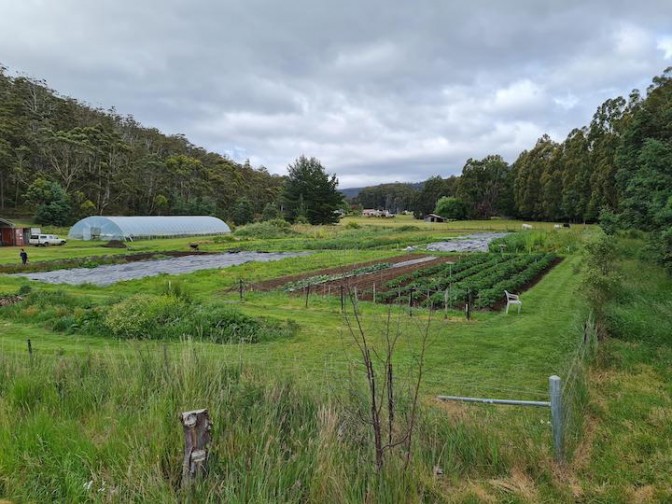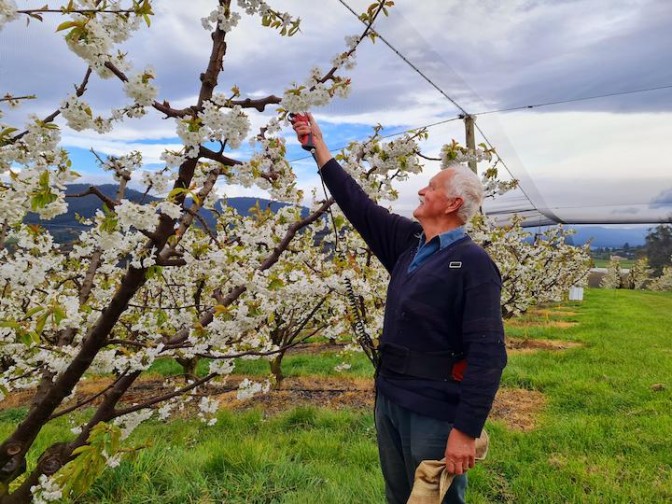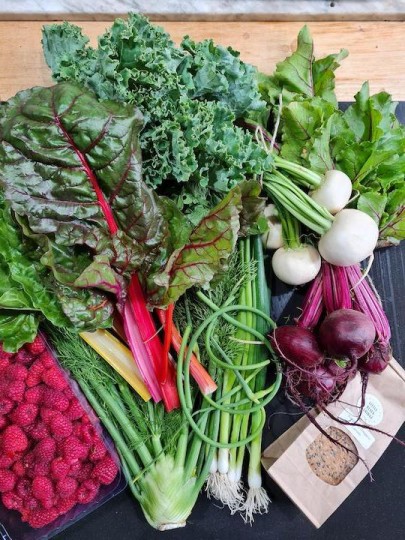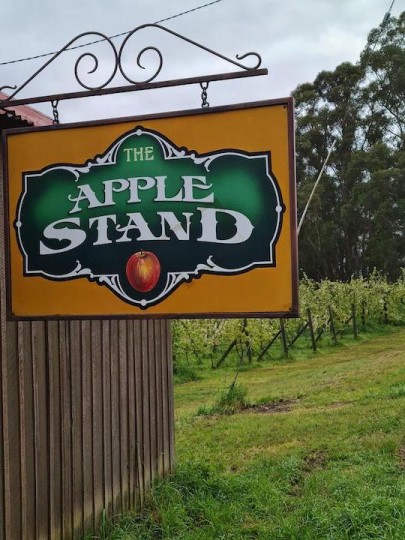Local Food Procurement: The Opportunity Whose Time Has Come
Leah Galvin, Freelance Consultant & Churchill FellowI am so pleased to be supporting and participating in the Sustain webinar series where we tap into the experience and learnings from the first 10 years of the Vermont Farm to Plate Strategy. Farm to Plate is a source of considerable inspiration and exemplars of what success looks like when you invest in regional food systems to create jobs, economic activity, build community and improve access to sustainable and tasty food. The webinar on December 16th focuses on institutional procurement and it is timely, with the interest in the power of procurement emerging as an important approach to positively disrupting our food systems here in Australia as part of our COVID-19 recovery.
When Dr. Nick Rose, Sustain’s Executive Director, first asked me to write this blog about institutional procurement as an opportunity to lever food system change, I had to stop and think about why this had become something of a professional passion. To be honest it was really more of a slow burn than an epiphany.

In 2012, my family and I moved to Tasmania, partly because it had a State level Food Security Strategy and because food and agriculture, along with the gorgeous environment, are clearly the state’s greatest assets. In subsequent years I discovered just how abundant the variety of food we grow and produce here in Tassie is, right across the seasons. But just like other states in Australia, the dominant conversation for food is about trade: Sending our food elsewhere and feeding others–not Tasmanians.
In Australia, the dominant conversation for food is about trade – sending our food elsewhere and feeding others.
As I learned more about how our food system works, some elements just started to drive me crazy. Like our shop’s shelves containing fruit and veg from the mainland Australia when it was in season and being harvested in Tasmania. It does not make sense, especially when Tasmanians have strong aspirations to eat locally sourced food plus, we market ourselves to the rest of the world as a place to visit and eat locally. It also does not make sense to only focus on trade if we want to have a sustainable and resilient food system.

For some time, I had felt like my work impact was really tinkering at the edges rather than resulting in changes that could be positive at a population and food system level. I wondered about how the work could be disruptive on a scale that would get the attention of growers, producers, wholesalers, and governments and help to keep more of our food here in the state making our food system more resilient. What really appealed about focusing on institutional procurement is the sheer scale and numbers of meals that are impacted and how it demands that distribution, logistics and B2B relationships change. So, my thesis became that the resulting disruption from institutional procurement would have a knock-on effect making is easier for retailers and hospitality to also procure locally. Internationally, food procurement has long been a lever for positively changing food systems and economic development.
I wondered about how the work could be disruptive on a scale that would get the attention of growers, producers, wholesalers, and governments and help to keep more of our food here in the state making our food system more resilient.
In early 2019, I applied for a Churchill Fellowship to explore business and government approaches that use local food procurement as a lever to drive food system change. I was lucky, this idea captured the confidence of the Trust and I was awarded a Fellowship. Concurrently, I also found support in Public Health Tasmania. A small grant allowed me (in my work at the time as State Manager of Eat Well Tasmania) to deliver an applied research project, with a range of collaborators We focussed on identifying roadblocks and opportunities for local food procurement by institutions in Tasmania.

During the Public Health funded project, myself, and colleagues from the University of Tasmania Newnham Campus in Launceston (where they make over 8,000 meals in a typical week) learned a lot about roadblocks and enablers for how we could influence procurement practices. The project resulted in two key rapid reviews’ which informed project decisions. We assessed case studies of success for institutional food procurement. The first review gave us a list of great tools and a checklist of critical success factors. The second review helped develop a narrative about how re-localisation of food systems can produce co-benefits for jobs, regional development, secure livelihoods for farmers and value-adders of all scales and improve access to healthy sustainable food. Given the COVID-19 disruption in our food systems, and importantly the shift by eaters wanting to eat more locally sourced food that we have observed this year, food procurement is an approach that’s time has come in Tasmania and Australia.
Unsurprisingly my Fellowship trip this year was postponed. I was heading to the US, Canada, Denmark, and Sweden. In all these countries there have been a variety of approaches that used food procurement to leverage change. The one thing they all have in common has been the commitment by government and institutions who value the opportunity of food procurement – this is evident in their policies/strategies, regulations, program investments and acts of parliament. This is largely absent here in Australia, though we are starting to see a gentle shift. COVID-19 has resulted in a new focus on government procurement as a tool for the recovery.
COVID-19 has resulted in a new focus on government procurement as a tool for the recovery.

For the last 20 years I have worked on dozens of projects and as an advocate pushing for change to our food systems, so it is more considerate of the impacts on eaters, livelihoods of producers and growers and our environment. I am totally persuaded by the international experience that local food procurement by institutions should be top of the list in our food led COVID-19 recovery.
Suggested reading for the curious
- Institutions as Conscious Consumers – leveraging purchasing power to drive systems change (Edited by Sapna E Thottathil and Annelies M Goger).
- Canadian Food Studies, a free access journal https://canadianfoodstudies.uwaterloo.ca/index.php/cfs/issue/view/21
- The rapid reviews and other assets from the Eat Well Tasmania local food procurement project - https://www.eatwelltas.org.au/local-food-procurement-tasmania/ - With thanks to Public Health Tasmania.
About the Author
Leah Galvin has a background in public health nutrition with a passion for equitable and sustainable regional food systems.
For the last 20 years Leah has worked in a variety of settings including state and local government and not for profit sector, delivering projects and campaigns to reduce barriers to eaters enjoying local healthy food. In 2019 she was awarded a Churchill Fellowship to investigate approaches used by business and government to increase institutional procurement of locally produced food.
Her interest in institutional procurement is driven by as desire to pull the big levers, that can re-localise food systems at scale in Tasmania and Australia. Eight years ago, with her family she moved from central Victoria to Tasmania because of its food abundance and at the time its excellent Food Security Strategy.
After 3 years leading Eat Well Tasmania, in September of 2020 she returned to freelancing and consulting and is currently working on projects around on-farm seasonal work, exploring a Huon Valley Food hubs and local approaches connecting eaters and producers.